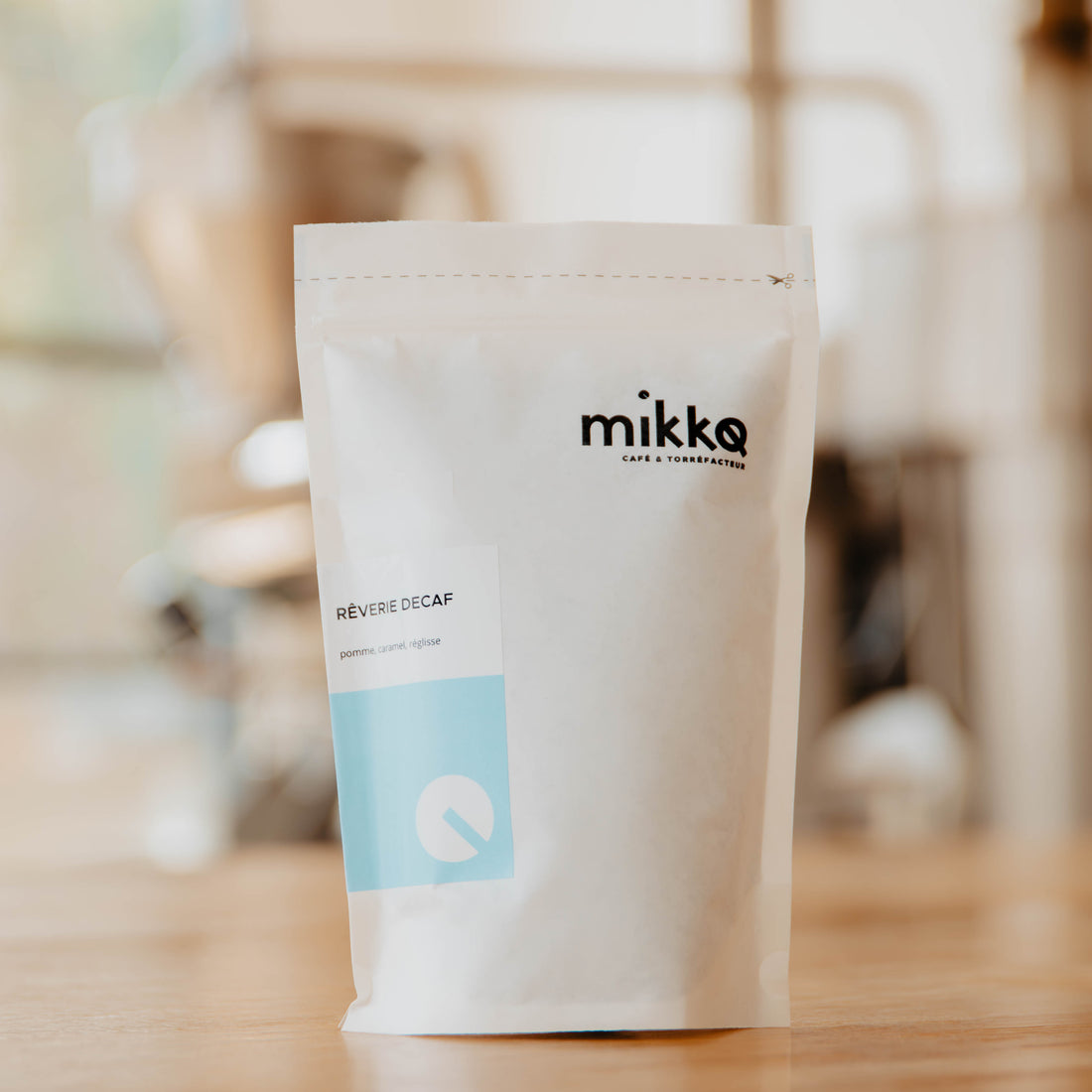Decaf Coffee - RÊVERIE
Decaf Coffee - RÊVERIE
Our Decaf is now called RÊVERIE! This delicious example will probably fool you into thinking it's caffeinated, but we promise its not!
Decaffeination process
The sugarcane EA (ethyl acetate) decaffeination process is a natural and eco-friendly method for removing caffeine from coffee beans. In this process, ethyl acetate, which is derived from sugarcane, is used to extract the caffeine from the coffee beans.
The process begins with unroasted, green coffee beans. These beans are first moistened with water and then placed in a drum where they are steamed for a short period. This step helps to open up the pores in the coffee beans, making it easier for the ethyl acetate to penetrate.
After steaming, the coffee beans are then soaked in a solution of water and natural ethyl acetate, which has been derived from sugarcane. The ethyl acetate acts as a solvent, bonding with the caffeine molecules and separating them from the coffee beans. The coffee beans are then washed with water to remove any remaining ethyl acetate and caffeine.
The final step in the process is drying the coffee beans. Once the beans are completely dry, they are ready to be roasted and enjoyed as decaffeinated coffee.
Compared to other decaffeination methods, the sugarcane EA process is considered to be more natural and environmentally friendly. It does not use harsh chemicals or leave behind any harmful residues. Additionally, the use of sugarcane-derived ethyl acetate helps support sustainable agriculture and reduces the carbon footprint of the decaffeination process.
Shipping and Pickup:
We roast and ship every Monday to ensure maximum freshness. Orders placed before 6:00 AM (ET) ship that afternoon; later orders ship the following Monday. You will be notified when your order is ready for pickup or shipping. Bring your confirmation email.
We roast all our coffees on our state-of-the-art Loring roaster. It's high-tech and we love it! It allows us to achieve outstanding consistency, bringing out the best in our green beans week after week.





